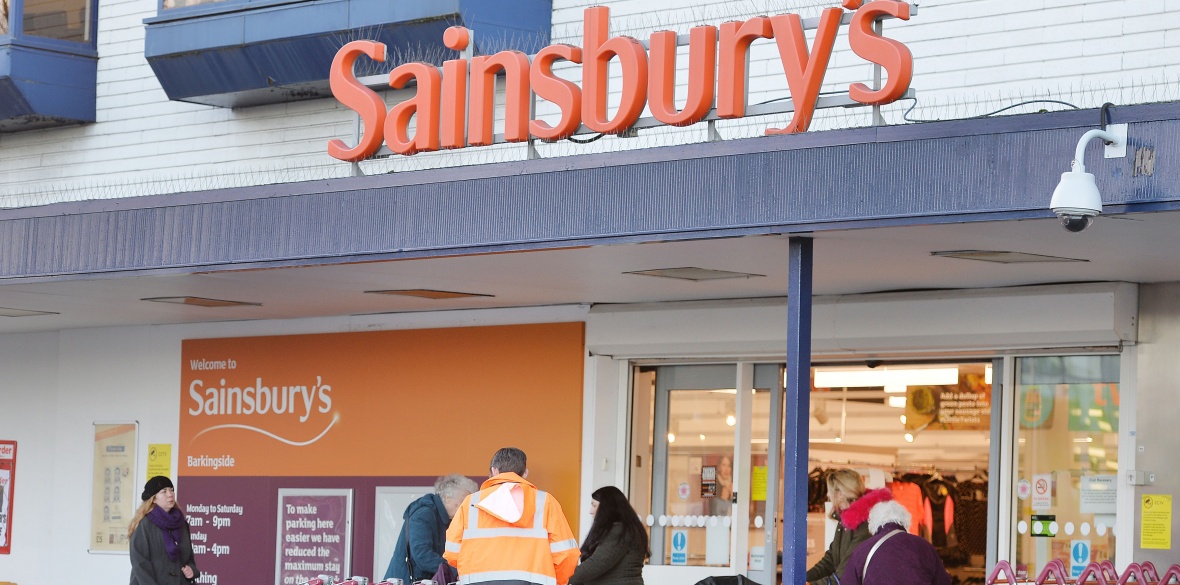This is the last article you can read this month
You can read more article this month
You can read more articles this month
Sorry your limit is up for this month
Reset on:
Please help support the Morning Star by subscribing here
SUPERMARKET Sainsbury’s claims to be the best-paying of the major players that dominate the food retail sector in Britain, which doesn’t say a great deal.
They all have records of accumulating huge amounts of profits out of shoppers in recent decades, which they put down to the genius of a small number of chief executives who are rewarded with salaries and bonuses adding up to millions of pounds a year.
In contrast, the poor bloody infantry — workers who stack the supermarket shelves, store goods in warehouses or face the public every day as they operate cash registers or answer customer queries and complaints — are paid wages at a level that makes it impossible to make ends meet.
Many staff members rely on government tax credits to boost their take-home pay from unspeakable to barely acceptable.
That means that supermarket customers — other working people — not only provide Sainsbury’s, Tesco, Morrisons, Asda, Lidl and the rest with their megaprofits but are also expected to top up, through our taxation, the wages of the underpaid staff employed by the supermarket premier league.
The Citizens UK charity, campaigning for a real living wage — not the misnamed fake introduced by unlamented Tory chancellor George Osborne — estimated in 2015 that state benefits claimed by supermarket staff exceeded, at about £1 billion a year, what these firms paid in corporation tax.
It was clearly the belief of Sainsbury’s, Tesco and so on that, whoever was responsible for ensuring that supermarket staff were earning enough to meet their needs, it wasn’t them.
Nearly three years have passed since the Citizens UK report and little has changed.
Sainsbury’s headline claim is that it will increase the hourly rate for workers at its 1,400 stores to £9.20 from September.
The small print discloses not only that this will be a two-year deal, with no further pay discussion until 2020, but that workers will be stripped of hard-won existing benefits — paid meal breaks, annual bonus and premium pay for Sunday working — to ease Sainsbury’s pain in financing the new deal.
Unite union official Bev Clarkson’s description of this as a “classic ‘robbing Peter to pay Paul’ situation” is difficult to argue with.
What kind of a pay rise is it when it is largely financed by the workers themselves?
When Sainsbury’s and other supermarkets wanted staff to accept Sunday working as normal, they sugar-coated the proposal with premium pay and denied suggestions that they would return in future to do away with it.
Sainsbury’s management is no more iniquitous than any other employer. It is simply single-minded about its bottom line. It’s what capitalism is all about.
Workers have to be equally single-minded about their ability to earn a living sufficient to keep themselves and their families and to take all necessary action to achieve that.
Steps towards Korean rapprochement?
POLITICIANS in Washington who have been intent on seeking a pretext to launch a pre-emptive strike against North Korea must be spitting feathers over the summit plan between Seoul and Pyongyang.
South Korean President Moon Jae In can expect to come under huge US pressure to make excessive demands and to reject the North’s proposals to reduce tensions and make the Korean Peninsula a nuclear-free zone.
The Korean people as a whole want a peaceful and united future, as the welcome given to united Korean teams at the recent Winter Olympics in Pyeongchang showed.
Left to their own devices, there is no reason why President Moon and Kim Jong Un cannot deliver such a desirable future.








